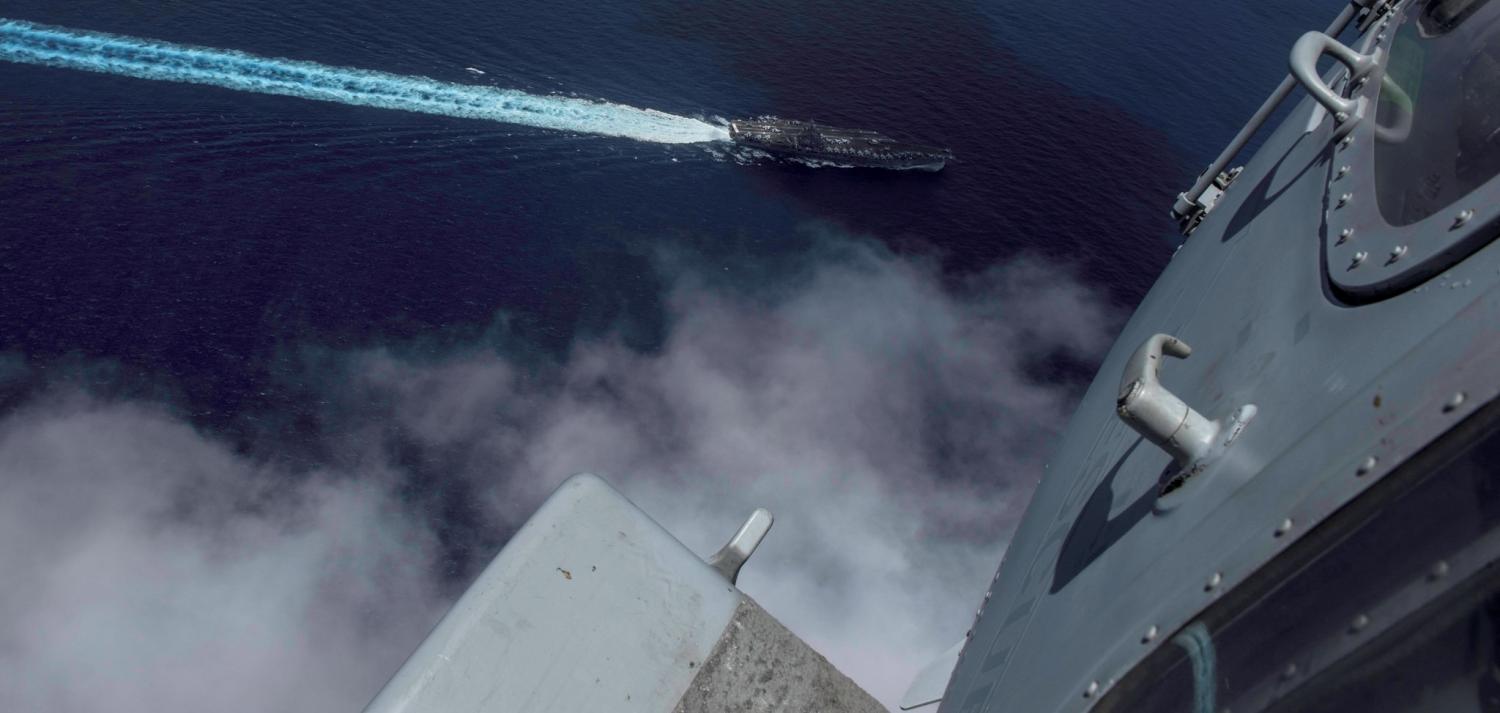I appreciate Hugh White taking the time to critique my essay in the current edition of Foreign Affairs, which recommends a course correction in US strategy to deter and, if necessary, deny Chinese control of the South China Sea. In fact, I agree with core elements of Hugh's perspective. He's right that the United States has yet to take seriously the severity of the China challenge, that there has been inadequate debate among America's leaders and its public about the very real stakes, and that current trends, including deficient US policy, portend a China-dominated region.
But Hugh and I diverge significantly on the question of whether the United States can and should do anything to arrest the slide toward a Chinese sphere of influence in Asia. He offers three reasons why my recommendations for a more robust US policy in the South China Sea would pose little chance for success, while likely risking war.
First, he argues that 'it is very unlikely that the Southeast Asian claimants would accept American help to fortify their islands, or that other regional allies like Australia or Japan would be willing to play their part'. But US and allied support for rival claimants is not, as Hugh describes, the 'first' and 'second' steps in my recommended strategy. Rather, I readily acknowledge that regional concerns about economic retribution for standing up to Chinese revisionism is a major obstacle for the United States. That is precisely why I argue that additional non-military measures would be necessary at the outset, including a return of US participation in the Trans-Pacific Partnership trade agreement, or some equally ambitious initiative on trade and investment that offers regional states an alternative to growing economic dependence on China. I also recommend an informational campaign aimed at shining a brighter light on China's illegal activities in the South China Sea, creating political space (if not domestic pressure) for governments to push back.
Moreover, this is a deterrence strategy – I argue the United States should move forward with proactively supporting regional states only if China reclaims Scarborough Reef or deploys advanced military capabilities to its new bases in the Spratly Islands. China taking these extraordinary steps would likely be provocative enough to alter political dynamics in Southeast Asia, heightening concerns and opening new opportunities for cooperation. Taken together, the execution of the proposed strategy would occur, as compared to today, in an environment much more conducive to attracting regional support.
Hugh's second critique is that the only choice for the United States is accommodation or war, and that Washington isn't willing to risk the latter. Hugh's characterisation of my argument that the United States should 'unambiguously commit to help defend other claimants' island bases' is simply a misreading – nowhere do I suggest such a commitment. Regardless, here's the line that I really disagree with: 'The reality is that there is now no way to push back effectively against China in the South China Sea itself without a high risk of war.' This view overlooks a number of important political, diplomatic, and institutional brakes on armed conflict between the United States and China, as demonstrated by the fact that we haven't see anything remotely approaching the brink of war (much less a major military crisis) even as the relationship has grown significantly more competitive. In fact, the current glide path toward Chinese hegemony in Southeast Asia poses a much more serious risk to US security and prosperity. In other words, uncontested Chinese dominance, not major power war, is the biggest threat facing the United States (and Australia, for that matter) in Asia today.
Besides, China is itself deeply risk-averse and has backed down in almost every instance in which the United States has stood firm on interest and principle. President Xi Jinping is likely aware that a war with the United States would severely damage both China's economic development and its aspirations for national reunification. Despite loose talk about China's 'core interests', recent experience suggests that China could certainly be compelled into a more moderate approach in the South China Sea, if only the United States and its partners were willing to make a serious go of it. Promoting the misperception of China as ready to run up the escalation ladder is both wrong and counterproductive: China has instead been pushing on an open door, surprised at its ability to do so cost-free. As a more general comment, I tend to think Hugh's analyses would benefit from less certainty about the futility of deterrence, and greater scepticism of China's own willingness to fight.
Finally, Hugh suggests that a more robust US policy won't work because Beijing currently doubts Washington's resolve. Now again we agree: that this is a serious problem, but also that it could be resolved by US leaders being clear at home and abroad about the intensity of the China challenge and the commensurate importance of America's enduring commitment to Asia. There's no question that, as Hugh says, 'this is a tall order, especially as things stand in DC right now.' It was never going to be easy, and it's only getting harder by the day. But now at least there's a viable plan on the shelf if and when US policymakers are willing to admit that US efforts are faltering, and to commit for real to preventing Chinese dominance of the South China Sea.
Read Hugh White's response to this article here.

